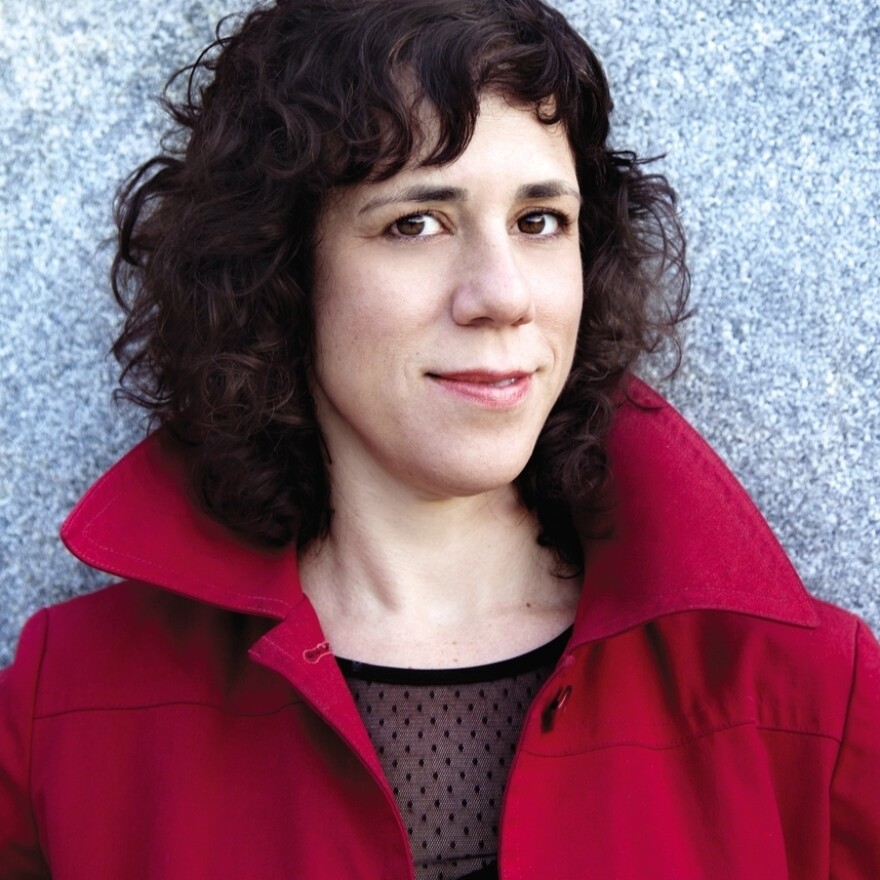Food appears so often and takes on so much importance in Jami Attenberg's novel The Middlesteins, that while reading it I sometimes felt like I was on a kind of literary cruise ship. But excess isn't presented here wantonly; instead, it's laid out and explored with sympathy, thought and depth. Early on, the parents of the main character think, "Food was made of love, and was what made love, and they could never deny themselves a bite of anything they desired." And so the novel takes off from the evocative starting point known as appetite.
The child of those parents grows up to be Edie Middlestein, the obese matriarch of the novel's eponymous family, who reaches well over 300 pounds before the book is through. The other Middlesteins know she is killing herself with food, but they are helpless to stop her.
After her husband, Richard, leaves her, Edie's adult children, Robin and Benny, become enmeshed in their estranged parents' lives. The family members' interactions and overlaps, their dissonant styles and divergent needs, create much of the drama of this novel, which sports a blurb from Jonathan Franzen and has its own Corrections-y, multiple-viewpoints-of-a-Midwestern-family feel to it, though with distinctly Jewish flourishes.
The way that adult children and their parents make their way through life, sometimes like a shared waltz, other times more like people shackled together on a chain gang, is rendered beautifully. The complicated dynamic between Robin and Edie comes through in a scene in which Edie takes Robin to a Chinese restaurant she frequents, and there Robin sees her mother not through the Middlestein lens, but through a new one:
"It was early, not even 5:00 PM, and the restaurant was empty, except for a young Chinese woman sitting before a giant pile of green beans spread on a table. She ... rushed toward Edie with open arms, and they quickly embraced."
When Edie finally introduces Robin, the woman says, "'The schoolteacher! What an honor to have you here. Your mother talks about you all the time. We love your mother. Just love her. She's our hero.'

"Robin was stunned, and a little stung, too, that she had no idea what was going on at that moment. ' Why is my mother the hero of a Chinese restaurant?' "
She may challenge Edie's heroism in this context, but as a reader I never questioned why Edie is the hero of the novel. She is helpless before life's temptations, even as they promise to take her away from all she loves.
When I started the book, I thought about how overweight people often suffer from prejudices and hostility, and I wondered whether the author would be fair to her character. I'm pleased to say she is. She doesn't overcompensate for the character's weight by, say, making her excessively cuddly and loveable. Instead, she does what good writers do, which is to make her real. She doesn't have to defend her character; she just has to let us get to know her.
The Middlesteins is a tender, sad and funny look at a family and their mother. In fact, it's so readable, it's practically edible.
Meg Wolitzer's new novel,The Interestings , will be published in April.
Copyright 2020 NPR. To see more, visit https://www.npr.org.

